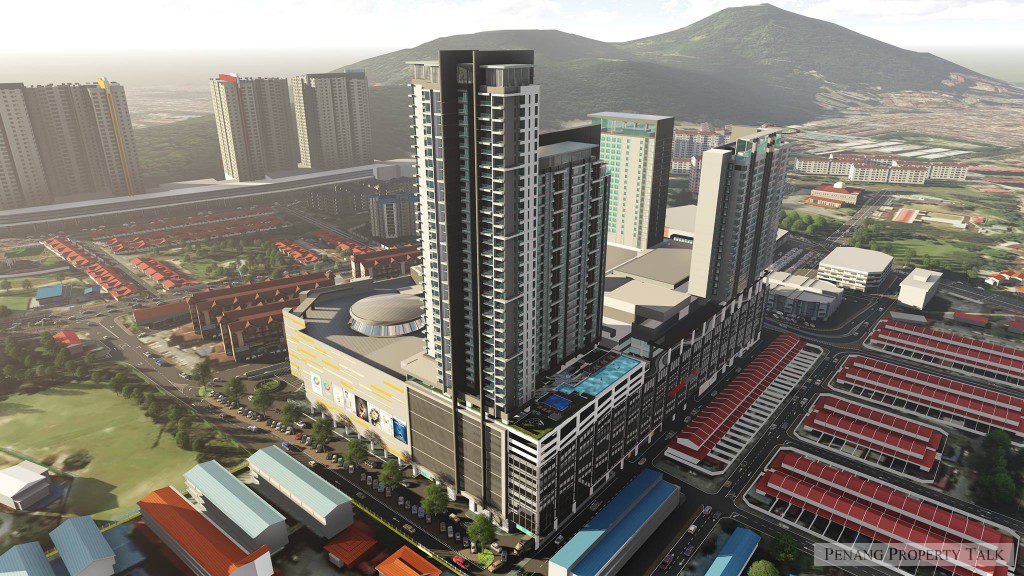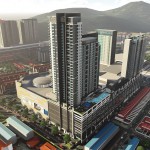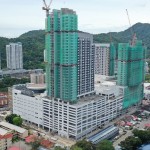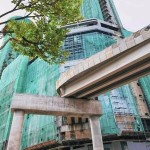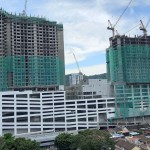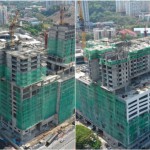PETALING JAYA: Real property gains tax (RPGT) would probably increase after Budget 2012 but experts are divided over the quantum or the new form the tax on property sales would take.
Few are hoping for the rate to be maintained but others felt the RPGT would increase by another 5%. The current RPGT, imposed after Budget 2010, is 5% for all properties sold within the first five years of purchase.
Previously, from April 2007 until it was reintroduced in January 2010, all gains from property transactions have been exempted from the tax.
If the Government decides to reintroduce the RPGT in its entirety, property speculators will feel the heat as gains from property sales within the first five years of purchase will be subject to a tax ranging from 5% to 30%.
HwangDBS Investment Management Bhd head of equities Gan Eng Peng was quite pessimistic, and said he was expecting the Government to announce an increase in RPGT from the current 5% to 30% during Budget 2012.
“From a macro-economic perspective, the rise in RPGT is primarily to normalise the level of property prices and to avoid any bubbles from popping. Land and property prices in hotspots such as the Klang Valley, Penang and Johor have been on the rise over the last two years, ranging from 30% to more than 50% depending on location and type of property. Also, we can see a correction in property stocks in the last two months. These have signalled the peak of the local property cycle. As such, increasing the RPGT to bring the sector to a soft descent is a good move,” said Gan via email.
Gan said Malaysia would not be the only country in this region to end the property boom.
“China and Singapore are aggressively doing so as well, in order to engineer a softer landing for the properly sector after it soared to dizzying heights since the low interest rate environment kicked in after the 2008 global financial crisis.”
However, property analysts and tax specialists were less pessimistic, with some expecting an increase in RPGT to 10% at the most, and others predicting the RPGT to be maintained at 5%.
A local tax consultant said while an increase in RPGT was likely, it would not reach pre-April 2007 levels.
“Any increase should be minimal, perhaps by another 5%. This would help to curb property speculation and, at the same time, not hit the sector too hard,” he said.
A bank-backed property analyst concurred, and reiterated that the objective of an increase in RPGT was to “make speculators think twice before offloading their properties.”
“It is time for the property market to enter a downcycle and at this juncture, the upside to price appreciation is very much capped. Speculators may think that it is better to offload their properties and invest their capital elsewhere. Thus, the Government may be worried about a situation of forced selling next year where owners may sell their properties at near panicky prices after they are completed in 2012. I think an increase in RPGT is likely in order to ease the pressure of such an undesirable situation.”
However, KPMG Tax Services Sdn Bhd executive director Tai Lai Kokopined that the current 5% RPGT would be maintained.
“Increasing the RPGT would mean changing the rules too often and investors would not be impressed. Also, increasing the RPGT by another 5% would not do much in curbing property speculation. The additional rise in tax collection would not be that substantial.”
CB Richard Ellis (M) Sdn Bhd executive director Paul Khong agreed and said any increase in the RPGT would affect the confidence of investors, especially foreign property buyers.
“Investors would get the impression that there is no stability in policies concerning gains on the disposal of properties. Even if the RPGT is increased from 5% to 10%, the question of what next would arise. Would the RPGT increase again in 2013 or 2014?”
Khong said those who had bought properties when no RPGT was imposed might quickly exit the market.
“Investors, especially foreign property buyers, have other options in obtaining the best returns for their investments. They can always go to Hong Kong, Singapore, Australia and London,” he said.
Khong also pointed out that real estate in Malaysia was among the cheapest in the region.
He felt the Government should not change RPGT regulations too often, and should allow the property market to find its own equilibrium.
“Even a so-called minimal increase in the RPGT from 5% to 10% would curb speculation to some degree and result in minimal price appreciation for new properties, especially in the current slowdown scenario for the sector. However, this would not affect genuine buyer-occupiers.”
Property consultancy CH Williams Talhar & Wong Sdn Bhd managing director Foo Gee Jen felt that the current 5% RPGT should be maintained as the property market was entering a self-correction phase.
“The sentiment in the property market is weakened compared with the scenario two years ago. Any increase in the RPGT would be counter-productive as speculation has been dampened by the maximum loan-to-value (LTV) ratio of 70% for the third and subsequent house financing facilities,” said Foo.
Foo felt that rather than increasing the RPGT, a better measure to further curb property speculation might be to impose a maximum LTV ratio of 80% for the second housing loan.
Meanwhile, property consultancy DTZ Nawawi Tie Leung Sdn Bhdexecutive director Brian Koh said the government would need to balance between trying to curb a potential property bubble and ensuring a healthy growth in the property market.
“With the dimmer current economic outlook, the property market may be due for a soft landing. Revising the RPGT may be too little and too late and could also provide a tripping point if investors turn too negative.”
Source: The Star


